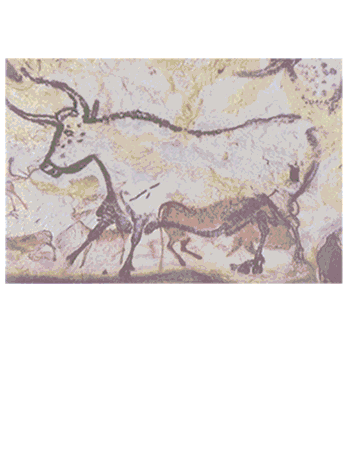| 
Textbook
Turner, Mark, editor. 2006. The
Artful Mind: Cognitive Science and the Riddle of Human Creativity.
New York: Oxford University Press. Images
and links for the chapters.
Additional readings will be posted as documents on Blackboard
and also listed at http://theartfulmind.stanford.edu.
These include radio interviews and other multimedia presentations
on the connection of cognitive science and the arts.
Schedule & Syllabus
Students should see the Blackboard
Site for the Course, which will be available after the close
of Fall semester. For a permit to take this course, email your
request to Mark Turner.
|
Description
This course is at the center of the conception of the distinctive
cognitive science program at Case, which emphasizes human higher-order
cognition in activities that distinguish human beings from other
species, and particularly behaviors for which there are no animal
models.
Human beings with mental architecture like ours came into existence
only yesterday, evolutionarily speaking—perhaps fifty thousand
years ago. At least, the archaeological record as we have it shows
no robust evidence of cognitively modern behavior before that epoch.
The staggering behavioral singularities that come with cognitively
modern minds—advanced tool use, decorative dress, language,
culture, religion, science, mathematics, art—present us with
the greatest scientific embarrassment, for they appear to indicate
a mysterious and unexplained discontinuity between us and the entire
rest of Life.
To have a cognitively modern human mind is to be robustly artful,
and conversely. This equivalence provides the inevitable starting
point for a field of study aimed at exploring obvious yet hard questions:
What is the evolutionary path from our remoter ancestors who somehow
lacked artful minds to the existence of cognitively modern human
beings, who cannot fail to be artful? How did the artful mind emerge?
In a leap, or through slow development? What are the basic mental
operations that make art possible for us now, and how do they operate?
What neurobiology subtends these abilities? What is the interplay,
in the phenomena of artfulness, between biological dispositions,
individual experience, and cultural history?
Topics include:
Art and Evolution
Art and Emotion
Art and the Way We Think
Art, Meaning, and Form
Art and Sacred Belief
Art and Ambiguity
|
